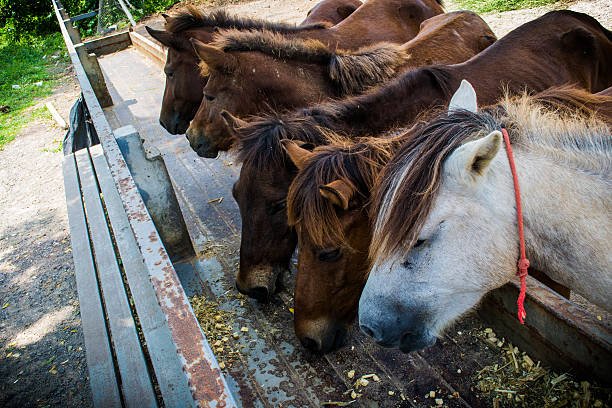
Imagine a horse with a radiant coat, robust immune system, strong bones, and optimal energy levels. As a responsible and dedicated horse owner, you understand the importance of providing your four-legged companion with the best care possible. A significant aspect of their well-being is nutrition, and that’s where horse supplements come into play.
That means investing in quality equipment like horse saddle pads, rugs, bridles, and headcollars is essential for keeping them safe and comfortable. Moreover, another significant aspect
Whether your horse is an athlete, a pleasure companion, or needs specific dietary support, here are essential information and practical tips to ensure your horse receives the ideal nutritional support.
Why Do Horses Need Supplements?
Proper nutrition is the foundation of good health and performance in horses. A well-balanced diet ensures horses receive the necessary vitamins, minerals, proteins, and other essential nutrients. However, factors such as inadequate grazing, poor-quality forage, or intense exercise can create nutritional gaps that must be filled with supplements.
Horses have unique dietary requirements that their regular feed may not always meet. EquiNutritive’s horse supplement bridges the nutritional gaps, ensuring that horses receive the nutrients they need for optimal health, strong immune function, and enhanced performance.
Whether your horse is a competitive athlete or beloved companion, supplements can provide targeted support to address specific needs and promote overall well-being.
Types of Horse Supplements
The market is filled with horse supplements formulated to address specific nutritional needs. Understanding the different types will help you choose the right supplements for your horse.
1. Vitamin and Mineral Supplements
Vitamin and mineral supplements provide a broad range of essential nutrients to support overall health. These supplements come in various forms, including powders, pellets, and liquids, and are often formulated to meet the needs of a horse’s different life stages.
2. Joint Supplements
Joint supplements are designed to promote healthy joint function and alleviate joint discomfort. They typically contain ingredients like glucosamine, chondroitin, hyaluronic acid, and MSM, which support joint mobility and reduce inflammation.
3. Digestive Supplements
Digestive supplements help maintain a healthy gastrointestinal tract in horses. They often contain probiotics and prebiotics to support gut health, promote efficient digestion, and prevent digestive issues such as colic or ulcers.
4. Coat and Hoof Supplements
Coat and hoof supplements focus on improving the quality and appearance of a horse’s coat and hooves. These supplements are rich in biotin, omega-3 fatty acids, and zinc, promoting healthy hair growth, strong hooves, and a lustrous coat.
5. Performance Supplements
Performance supplements are tailored for horses engaged in rigorous training, competitions, or high-performance activities. These supplements may contain electrolytes, amino acids, and energy boosters to enhance endurance, muscle recovery, and overall performance.
Choosing the Right Horse Supplement
Selecting the appropriate horse supplement can be a daunting task. Consider the following to make an informed decision.
Assessing Your Horse’s Individual Needs
Every horse is unique, with specific requirements based on age, breed, activity level, and overall health. Assess your horse’s needs before choosing a supplement to ensure it addresses any specific nutritional deficiencies or health concerns.
Consulting with a Veterinarian or Equine Nutritionist
Consulting with a veterinarian or equine nutritionist when selecting a horse supplement is highly recommended. These professionals can provide valuable insights based on your horse’s condition and help you choose the most suitable product.
Considering the Quality and Safety of Supplements
Ensure your supplement comes from a reputable manufacturer that produces high-quality and safe products. Look for certifications and third-party testing to verify the supplement’s authenticity and quality.
Reading Labels and Understanding Ingredients
Carefully read the labels of horse supplements to understand their ingredients, dosage recommendations, and usage instructions. Familiarise yourself with the active ingredients and their benefits or potential side effects.
Checking for Third-Party Certifications
Look for supplements that have undergone third-party testing or have certification from reputable organisations. These certifications indicate that the product has been evaluated for safety and quality.
Boost Your Horse’s Performance with the Right Supplements
Horse supplements are not a one-size-fits-all solution. It is important to consult with your veterinarian or equine nutritionist to develop a customised feeding program that aligns with your horse’s overall well-being. With the right nutritional support, your horse can reach their full potential and thrive in whatever role they play in your life.
https://www.equinavia.com/equine-nutrition-101-guide-to-horse-nutrients-and-feeds



